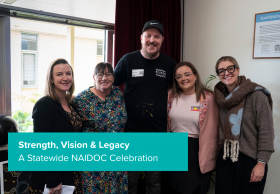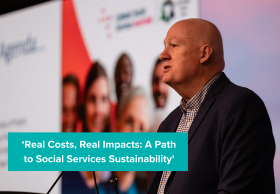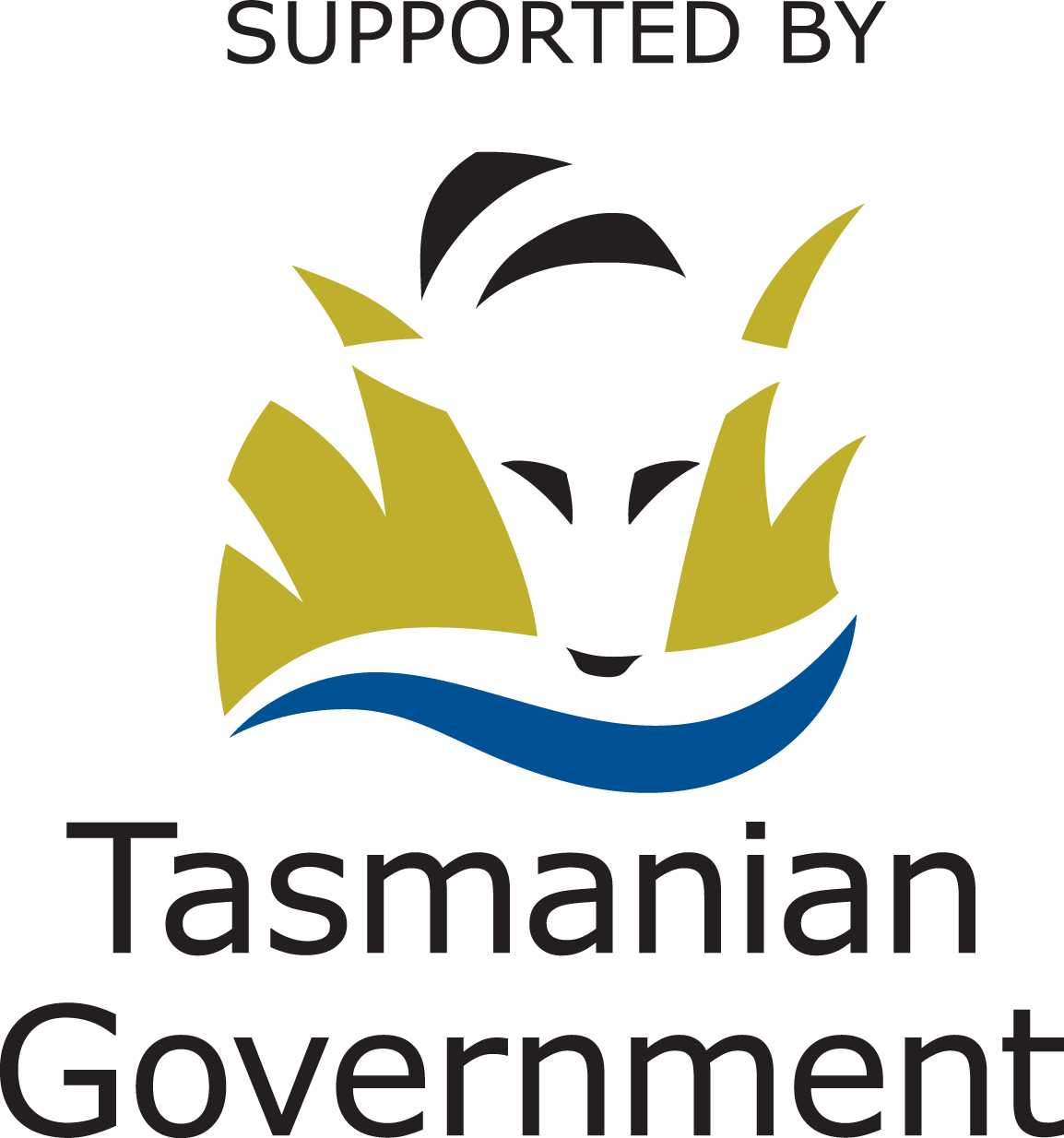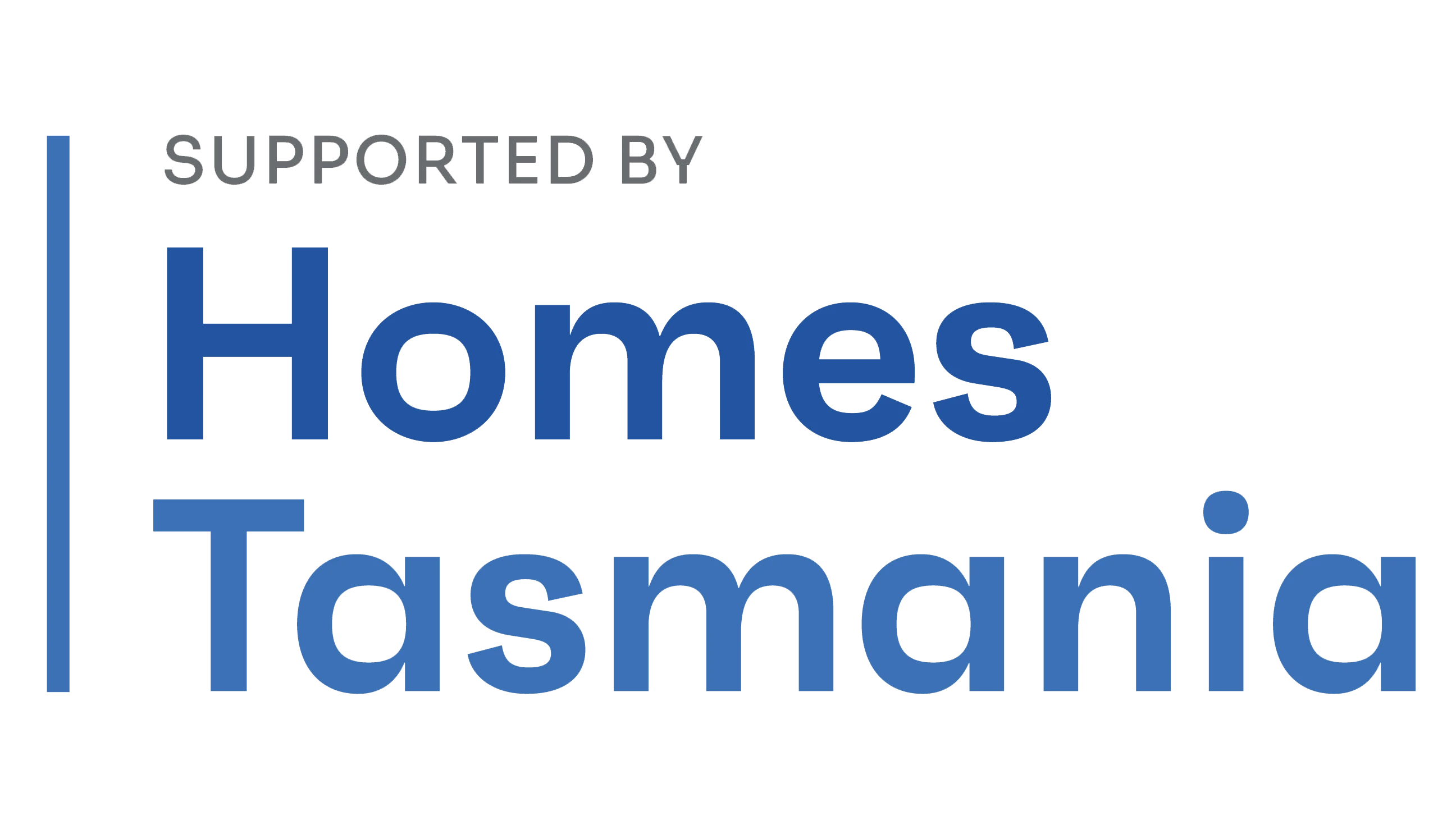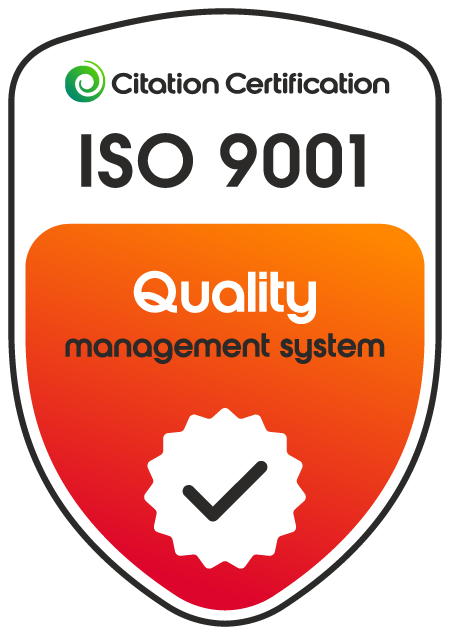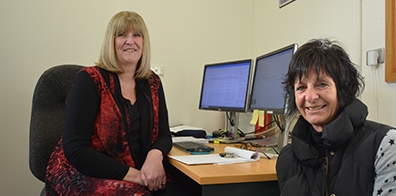
Those in need of extra assistance during the COVID-19 crisis have found welcome help through CatholicCare Tasmania’s Emergency Relief, which has now been given state funding to further assist temporary visa holders.
CatholicCare Tasmania has been providing Emergency Relief since 2019, but Michael McKenna, Executive Manager of Community, Family and Children’s Services, says there has been a steady increase in requests since COVID-19.
“CatholicCare distributes emergency funds to those in the community that find themselves in a difficult financial position,” he said.
“Emergency relief is just that: relief in the form of vouchers or paying a bill – or part of a bill – at those times when people are in a financial emergency.”
No cash is given out, but grocery, petrol and pharmacy vouchers are available, and assistance is tailored to the individual need: urgent car repairs, medical bills, the purchase of necessary white goods.
“In the past 12 mo
nths, CatholicCare has distributed funds in one form or another to more than 1000 families or individuals,” Mr McKenna said.
“Very often when people are assessed for Emergency Relief we are able to refer these families on to further support such as our SafeChoices family violence program, our mental health and counselling programs, or to services provided by other agencies.”
Marianne Curran is the statewide coordinator of Emergency Relief and says the staff receiving the requests for Emergency Relief can field up to 50 phone calls a day.
Due to COVID-19 assessments are conducted by phone. Emergency Relief is delivered at nine sites across the state: New Town, Bridgewater, Huonville, St Helen’s, Launceston, George Town, Devonport, Burnie and Zeehan.
Mrs Curran says that previously those accessing help were more often women than men, and often single mothers, but that lately “it’s been families”.
“We’ve got people who have never had to ask for help before who have lost employment through COVID-19,” she said.
“The biggest cohort over the past three weeks [receiving help] has been temporary visa holders.”
The federal government has funded CatholicCare’s Emergency Relief since 2019, but now temporary visa holders will be able to receive even greater assistance, thanks to rec
ent funding from the Tasmanian state government.
“They’ve got no income because they’ve all lost their jobs – they’re mainly in hospitality jobs … They’re really struggling,” Mrs Curran said.
A recent donation from the Hobart Friendly Society will enable CatholicCare Tasmania to provide even more Emergency Relief. Established in 1883, the Hobart Friendly Society generates profits through their three Friendly Care not-for-profit Pharmacies. The majority of these profits are donated back to charitable organisations that benefit the local Hobart community.
It is the ability to meet an individual’s needs directly – and often help people who may be unable to receive other assistance – that is the beauty of Emergency Relief, says Archbishop Julian.
“While the government has put a number of programs in place which have been very, very helpful … there have been groups of people who have not benefited from those programs. A number of them have lost jobs and are in often difficult circumstances.”
Archbishop Julian says that it is important that the Church is able to engage directly and immediately with people in their needs, and that a number of those who had received assistance had been referred to th
e Emergency Relief by priests of the Archdiocese.
People often break into tears when they realise they are going to receive help, Mrs Curran says.
“It’s tears – all the time it’s tears. Even the men just break down. It’s quite heartbreaking actually. Tears of relief … they just can’t believe that someone would help them like that. It’s just total gratitude.”
Those seeking to access Emergency Relief can call 1800 819 447.
Other news you may be interested in

Those in need of extra assistance during the COVID-19 crisis have found welcome help through CatholicCare Tasmania’s Emergency Relief, which has now been given state funding to further assist temporary visa holders.
CatholicCare Tasmania has been providing Emergency Relief since 2019, but Michael McKenna, Executive Manager of Community, Family and Children’s Services, says there has been a steady increase in requests since COVID-19.
“CatholicCare distributes emergency funds to those in the community that find themselves in a difficult financial position,” he said.
“Emergency relief is just that: relief in the form of vouchers or paying a bill – or part of a bill – at those times when people are in a financial emergency.”
No cash is given out, but grocery, petrol and pharmacy vouchers are available, and assistance is tailored to the individual need: urgent car repairs, medical bills, the purchase of necessary white goods.
“In the past 12 mo
nths, CatholicCare has distributed funds in one form or another to more than 1000 families or individuals,” Mr McKenna said.
“Very often when people are assessed for Emergency Relief we are able to refer these families on to further support such as our SafeChoices family violence program, our mental health and counselling programs, or to services provided by other agencies.”
Marianne Curran is the statewide coordinator of Emergency Relief and says the staff receiving the requests for Emergency Relief can field up to 50 phone calls a day.
Due to COVID-19 assessments are conducted by phone. Emergency Relief is delivered at nine sites across the state: New Town, Bridgewater, Huonville, St Helen’s, Launceston, George Town, Devonport, Burnie and Zeehan.
Mrs Curran says that previously those accessing help were more often women than men, and often single mothers, but that lately “it’s been families”.
“We’ve got people who have never had to ask for help before who have lost employment through COVID-19,” she said.
“The biggest cohort over the past three weeks [receiving help] has been temporary visa holders.”
The federal government has funded CatholicCare’s Emergency Relief since 2019, but now temporary visa holders will be able to receive even greater assistance, thanks to rec
ent funding from the Tasmanian state government.
“They’ve got no income because they’ve all lost their jobs – they’re mainly in hospitality jobs … They’re really struggling,” Mrs Curran said.
A recent donation from the Hobart Friendly Society will enable CatholicCare Tasmania to provide even more Emergency Relief. Established in 1883, the Hobart Friendly Society generates profits through their three Friendly Care not-for-profit Pharmacies. The majority of these profits are donated back to charitable organisations that benefit the local Hobart community.
It is the ability to meet an individual’s needs directly – and often help people who may be unable to receive other assistance – that is the beauty of Emergency Relief, says Archbishop Julian.
“While the government has put a number of programs in place which have been very, very helpful … there have been groups of people who have not benefited from those programs. A number of them have lost jobs and are in often difficult circumstances.”
Archbishop Julian says that it is important that the Church is able to engage directly and immediately with people in their needs, and that a number of those who had received assistance had been referred to th
e Emergency Relief by priests of the Archdiocese.
People often break into tears when they realise they are going to receive help, Mrs Curran says.
“It’s tears – all the time it’s tears. Even the men just break down. It’s quite heartbreaking actually. Tears of relief … they just can’t believe that someone would help them like that. It’s just total gratitude.”
Those seeking to access Emergency Relief can call 1800 819 447.
Other news you may be interested in
Other news

